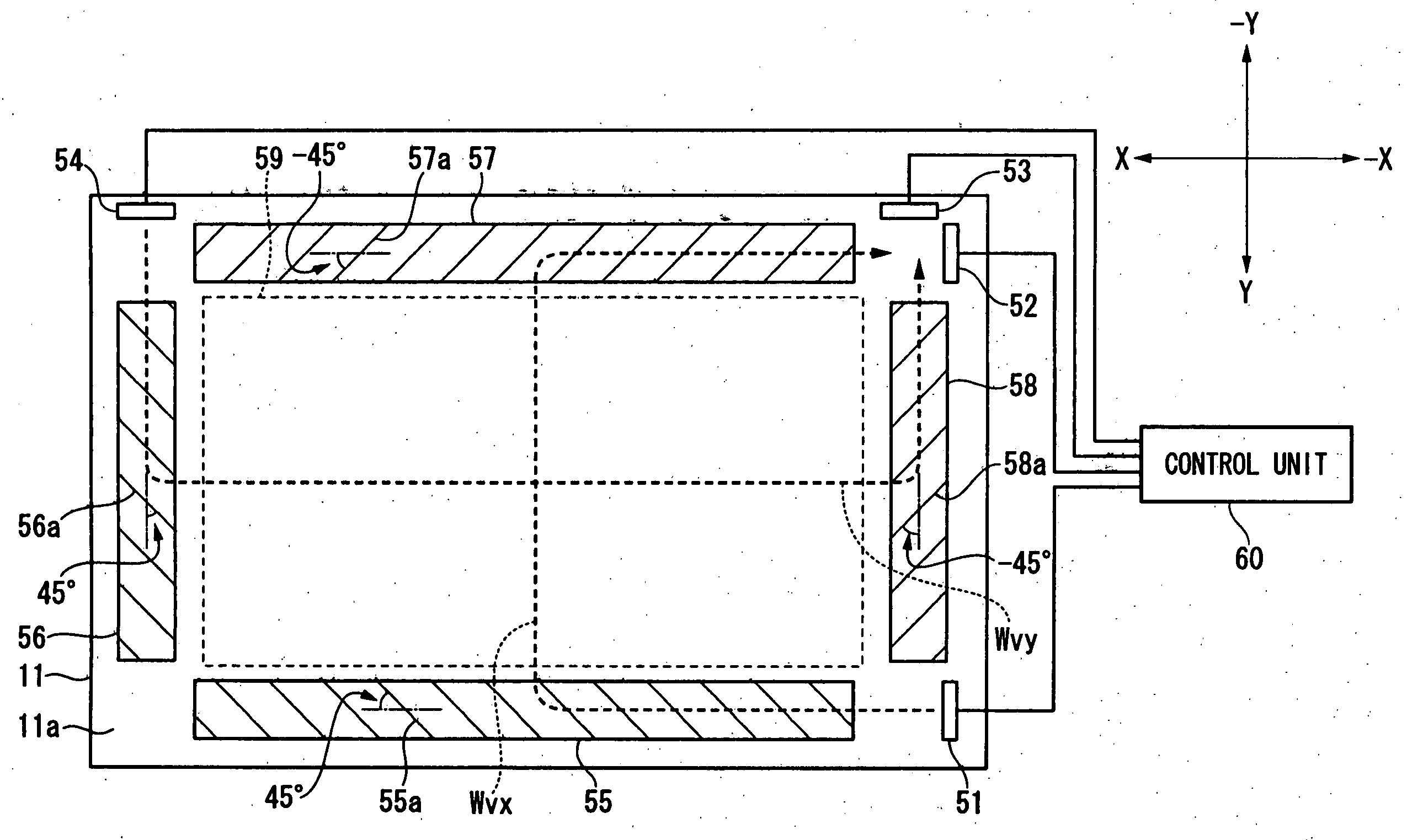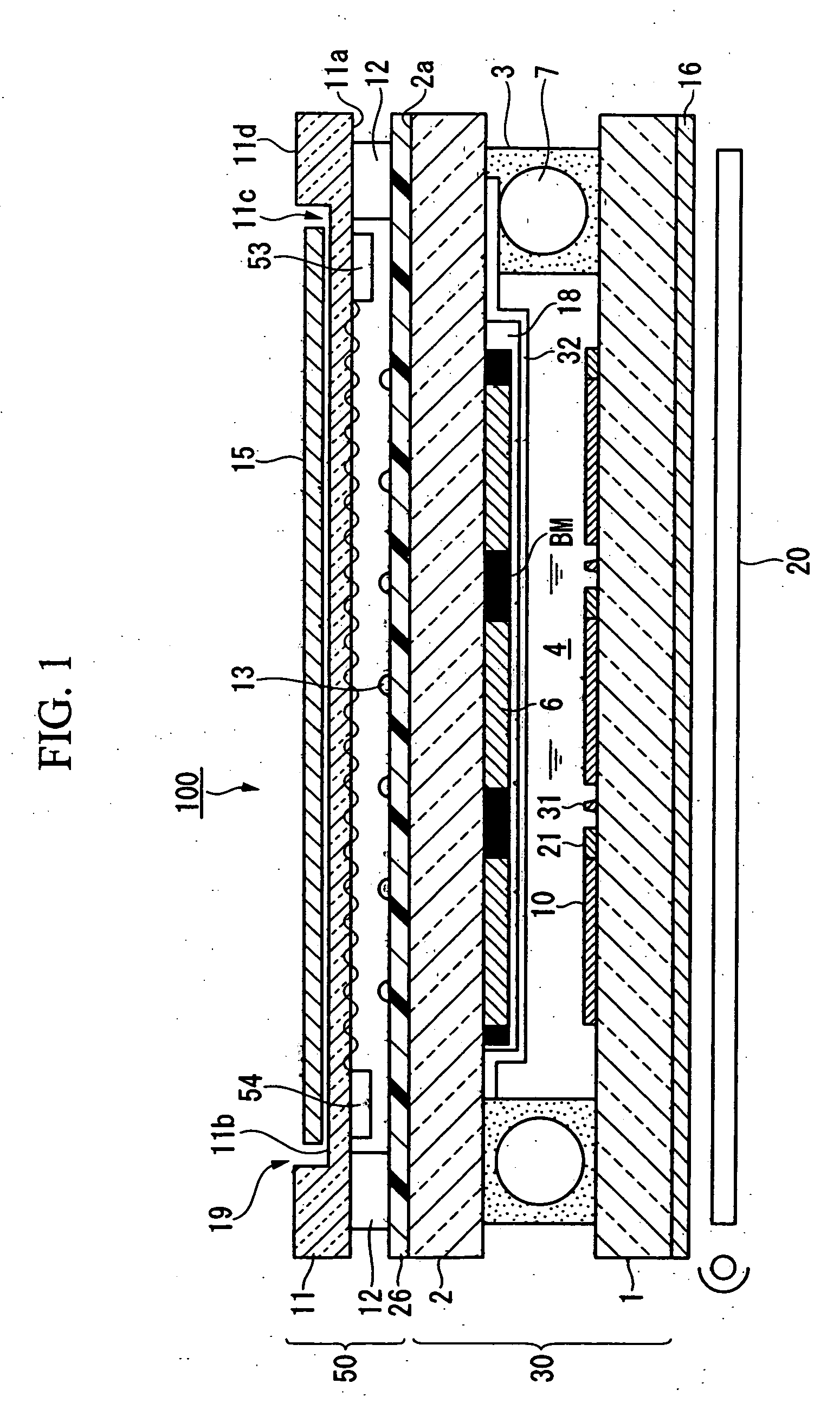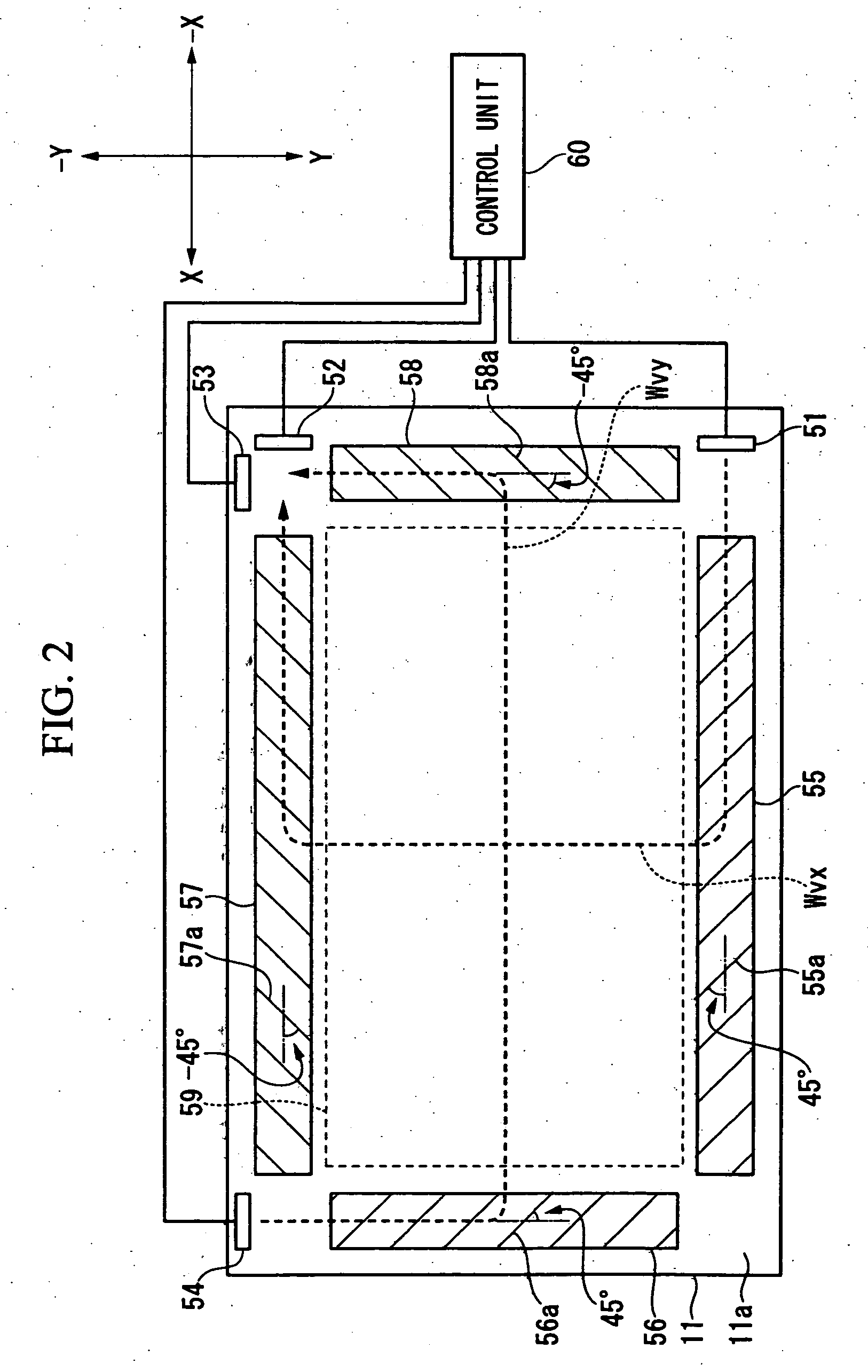Touch panel, electro-optic device, manufacturing method for electro-optic device and electronic device
a manufacturing method and electrooptic technology, applied in the direction of electric digital data processing, instruments, computing, etc., can solve the problems of touch panel erroneously detecting locations, surface acoustic waves also attenuated, poor impact resistan
- Summary
- Abstract
- Description
- Claims
- Application Information
AI Technical Summary
Benefits of technology
Problems solved by technology
Method used
Image
Examples
first embodiment
[0084]Liquid Crystal Display Device
[0085]Firstly, a liquid crystal display device 100 including a touch panel according to a first embodiment of this invention will be described.
[0086]FIG. 1 is a cross-sectional view showing in typical form a schematic structure of the liquid crystal display device 100 including a touch panel according to the first embodiment.
[0087]In the embodiments described below, this invention is applied to a liquid crystal display device.
[0088]In FIG. 1, the liquid crystal display device 100 (an electro-optic device) is broadly separated into a liquid crystal display panel 30 (an electro-optic panel) and a touch panel 50.
[0089]Firstly, the structure of the liquid crystal display panel will be described with reference made to FIG. 1.
[0090]Surfaces of an element substrate 1 and a color filter substrate 2 that is closer to the liquid crystal layer is called an inner side, while a surface on the opposite side from the liquid crystal layer is called an outer side.
[...
second embodiment
[0224]Next, this embodiment will be described with reference made to the drawings.
[0225]In the above described first embodiment, a touch panel was constructed using a pair of thin substrates.
[0226]In contrast, this second embodiment differs in that a touch panel is constructed using a pair of touch panel substrates, namely, a first touch panel substrate (thin substrate 11) and a second touch panel substrate.
[0227]The rest of the basic structure of the liquid crystal display device is the same as in the first embodiment. Therefore, the same reference numerals are used for common component elements and a detailed structure thereof is omitted.
[0228]FIG. 6 is a cross-sectional view showing the schematic structure of the liquid crystal display device 100 according to this embodiment.
[0229]As shown in FIG. 6, a touch panel 50 has a first touch panel substrate 11 that has been made thinner by etching, and a second touch panel substrate 14 that is arranged so as to face the first touch pane...
PUM
 Login to View More
Login to View More Abstract
Description
Claims
Application Information
 Login to View More
Login to View More - R&D
- Intellectual Property
- Life Sciences
- Materials
- Tech Scout
- Unparalleled Data Quality
- Higher Quality Content
- 60% Fewer Hallucinations
Browse by: Latest US Patents, China's latest patents, Technical Efficacy Thesaurus, Application Domain, Technology Topic, Popular Technical Reports.
© 2025 PatSnap. All rights reserved.Legal|Privacy policy|Modern Slavery Act Transparency Statement|Sitemap|About US| Contact US: help@patsnap.com



